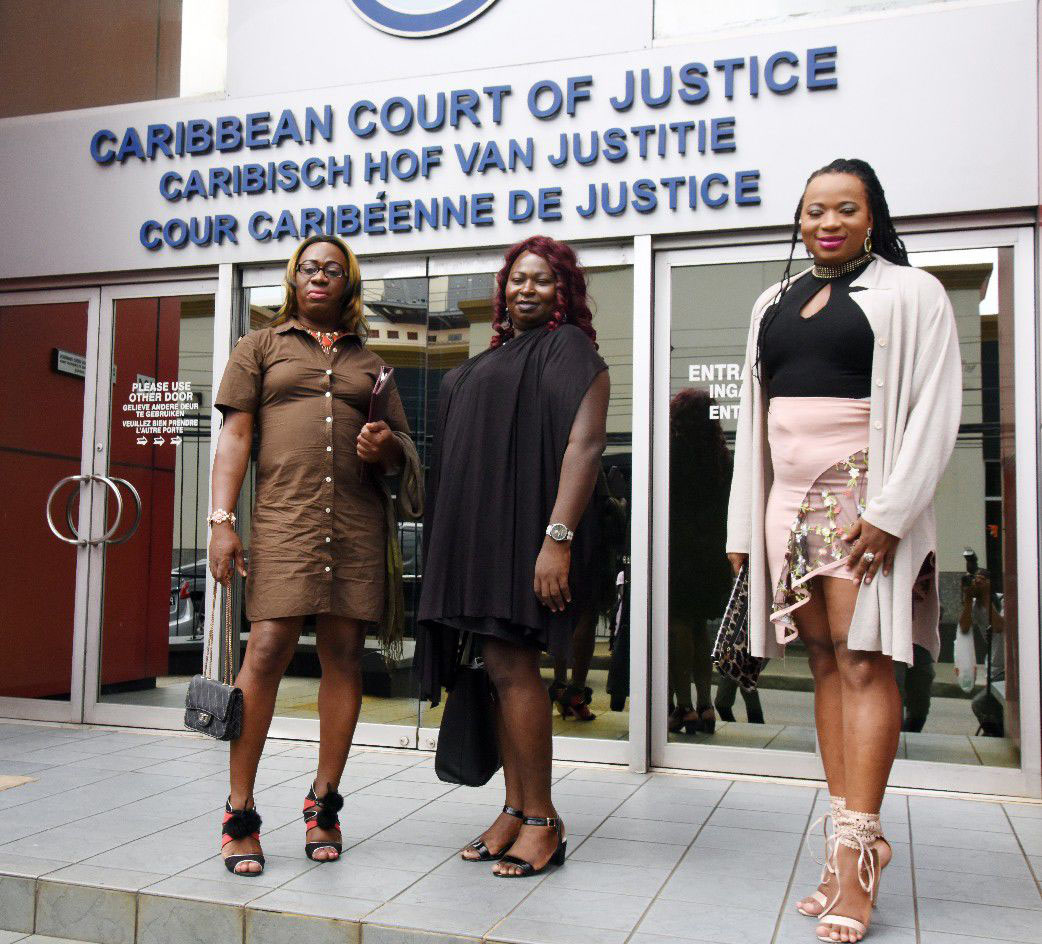The government is moving to strike out the “archaic” law against cross-dressing in order to give effect to an over two-year-old Caribbean Court of Justice (CCJ) ruling.
Attorney General Anil Nandlall on Thursday tabled a bill in the National Assembly to delete Section 153 (1) (xlvii) of the Summary Jurisdiction (Offences) Act to comply with the Order issued by the CCJ in November 2018.
“This amendment gives effect to the judgement of the [CCJ] in the case of Qunicy McEwan et al vs the Attorney General of Guyana [2018] CCJ 30 (AJ), and signals the government’s commitment to fulfilling the human rights of all Guyanese. The Government rightly acknowledges and agrees with the CCJ that this archaic law, which is inconsistent with the Constitution of Guyana,” has no social of legal purpose in a progressive society,” the bill’s explanatory memorandum states.
Section 153 (1) (xlvii), which provides that it is an offence for any person to appear in the attire of the opposite gender, in a public way or public place for any improper purpose, was challenged by a group of Guyanese transgender women who contended that the law prohibiting cross-dressing is unconstitutionally vague and contravenes their right to freedom of expression.
In 2009, several trans women were arrested and convicted under the 1893 Summary Jurisdiction (Offences) Act of the offence of being a “man” appearing in “female attire” in public for an “improper purpose.” They spent three nights in police detention in Georgetown after their arrest for the minor crime.
In 2010, Quincy McEwan, known as Gulliver, Seon Clarke, known as Angel Clarke, Joseph Fraser, also known as Peaches Fraser, and Seyon Persaud, also known as Isabella Persaud brought an action challenging the constitutionality of the law and their treatment during the legal process. The High Court of Guyana held that cross-dressing in and of itself is not a crime, but disagreed that the law was discriminatory or disproportionately impacted trans and gender non-conforming persons. This decision was appealed to the Guyana Court of Appeal, and finally to the CCJ.
Their main contention had been that the law, which prohibits cross-dressing “for an improper purpose,” was so vague that it does not define what constitutes an “improper purpose,” which ultimately leads to uncertainty.
In its ruling, which was read by CCJ President Justice Adrian Saunders, the court held that the law was unconstitutionally vague, violated the appellants’ right to protection of the law and was contrary to the rule of law.
On this point, the court upheld the appeal on the basis that the law resulted in transgendered and gender nonconforming persons being treated unfavourably by criminalising their gender expression and gender identity.
Agreeing with arguments advanced by the appellants, Justices Saunders, Maureen Rajnauth-Lee, Jacob Wit, Denys Barrow and Winston Anderson all held that at the heart to the right of equality and non-discrimination lies a recognition that a fundamental goal of any constitutional democracy is to develop a society in which all citizens are respected and regarded as equal.
Against this background, Justice Saunders referenced Article 149 (1) of Guyana’s Constitution, which provides for protection from discrimination.
That article provides, “subject to the provisions of this article, no law shall make any provision that is discriminatory either of itself or in its effect; and no person shall be treated in a discriminatory manner by any person acting by virtue of any written law or in the performance of the functions of any public office or any public authority.”
The court said the while it is true that cross-dressing is practised by persons of several types of sexual orientation, the law had a disproportionately adverse impact on transgender persons, “particularly those who identify with the female gender.”






